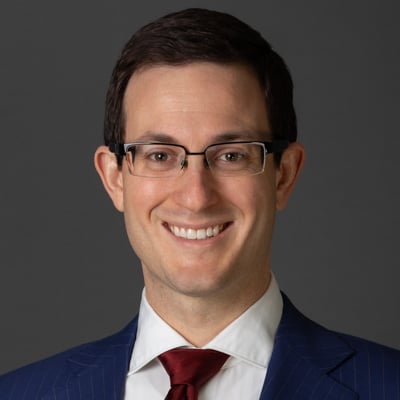Oracle Urges Fed. Circ. To Toss Google's Java Copyright Win
Oracle Corp. urged the Federal Circuit on Monday to overturn a ruling that Google Inc.'s Android mobile operating system hadn't infringed Oracle's copyrighted Java software, blasting the lower court for applying "software exceptionalism" to copyright law.
Handed down in May, the ruling against Oracle said that the software code of Java's application programming interface, or API, is an unprotectable "method of operation." The decision let Google off the hook for claims that it infringed Oracle's copyright by replicating the functionality of the widely used Java when it created Android.
In its opening salvo at the Federal Circuit, Oracle harshly criticized the ruling, saying the lower court had created a dangerous carve out in copyright law that deprives complex software of the same necessary protection afforded to other works.
"Had Google done exactly the same thing with a novel or a symphony, there would be no doubt that it copied protectable expression," Oracle's brief said, claiming that copyrights protect even Chinese food menus and short jingles. "But the copied works here were vastly more original, creative and labor intensive."
"Nevertheless, the district court stripped them of all copyright protection," Oracle added. "The court saw this software as just different."
The company wants the ruling overturned because it conflicts with prior decisions — like 1992's Atari v. Nintendo — that said software code is a protectable expression because authors select and arrange lines of source code in an original way.
But even further, Oracle said it wants the court to overturn a fair-use interpretation that would allow a "commercial competitor may [to] copy verbatim crucial features of another's expression." If allowed the stand, the lower court's decision will economically disincentivize further technological innovation, the brief said.
"Oracle would never have revolutionized the computer world if it knew up front that a court would find that the public was and remains free to co-opt its work for financial gain," the brief said, quoting the lower court ruling.
"J.K. Rowling does not write blockbusters for everyone to knock off," the brief said, referring to the author of the highly profitable Harry Potter series of children's books. "Neither will innovators like Oracle."
Released by Sun Microsystems Inc. in 1995, Java is a programming language designed to allow programmers to create code that will run on numerous platforms without being reconfigured. APIs are preset packages of Java code created so programmers can easily use oft-repeated functions rather than rewriting them each time. Oracle bought Sun and Java for $7.4 billion in 2010.
Oracle sued Google in 2010, claiming the market-leading Android platform violated both copyrights and patents for Java. The suit said the preset software packages provided through the APIs were protected by U.S. Patent Numbers 6,061,520 and RE38,104, as well as 37 copyrights.
Oracle was looking for more than $1 billion in damages, but a federal jury cleared Google of patent infringement on May 12 and U.S. District Judge William Alsup shot down the copyright claims later that month.
In doing so, the judge said that as long as the specific code used to implement a particular method in the Java API is different, the Copyright Act allows anyone to write their own code to execute the same functionality.
He also stressed that his decision was not intended to create the far-reaching effects that Oracle warned of in its Federal Circuit brief.
"This order does not hold that Java API packages are free for all to use without license," Judge Alsup said in the opinion. "It does not hold that the structure, sequence and organization of all computer programs may be stolen. Rather, it holds on the specific facts of this case, the particular elements replicated by Google were free for all to use under the Copyright Act.”
The reference to Harry Potter was one of several in the brief. Oracle opened its argument by telling a hypothetical tale of "Ann Droid," an author that copies much of "Harry Potter and the Order of the Phoenix" in order to create a best-seller.
"J.K. Rowling sues for copyright infringement," the brief said. "Ann's defenses: 'But I wrote most of the words from scratch. Besides, this was fair use, because I copied only the portions necessary to tap into the Harry Potter fan base.' Obviously, the defenses would fail."
Oracle is represented by Annette L. Hurst, Gabriel M. Ramsey, Elizabeth C. McBride, E. Joshua Rosenkranz, Mark S. Davies, Andrew D. Silverman and Kelly M. Daley of Orrick Herrington & Sutcliffe LLP; by Dale M. Cendali, Diana M. Torres, Sean B. Fernandes and Joshua L. Simmons of Kirkland & Ellis LLP; and by in-house counsel Dorian E. Daley, Matthew M. Sarboraria and Deborah K. Miller.
Google is represented by Keker & Van Nest LLP.
The case is Oracle America Inc. v. Google Inc., case number 13-1021, in the U.S. Court of Appeals for the Federal Circuit.
REPRINTED WITH PERMISSION FROM THE FEBRUARY 12, 2013 EDITION OF LAW360 © 2013 PORTFOLIO MEDIA INC. ALL RIGHTS RESERVED. FURTHER DUPLICATION WITHOUT PERMISSION IS PROHIBITED. WWW.LAW360.COM

